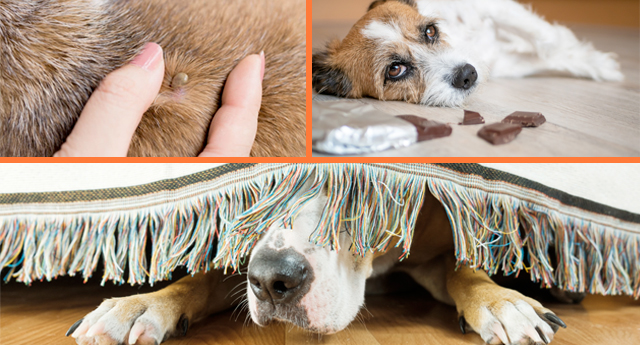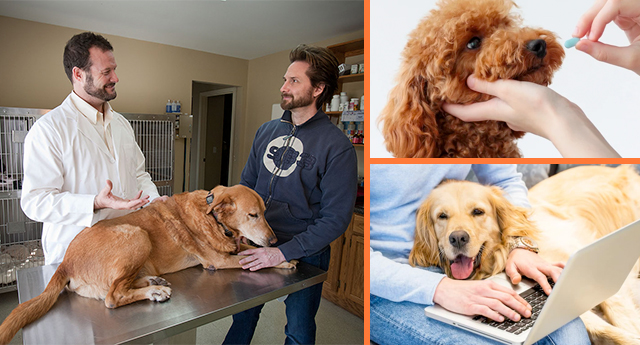Endless panting, pacing, and unsettled behavior. It’s easy to spot when your dog is restless. And naturally, as a concerned pet owner, you quickly browse through the internet for a natural remedy for dog restlessness.
Then, the anxiety sets in. We are familiar with the feeling.
You know your pet’s normal behavior, and you are aware when they’re out of character. But it’s best that you put your anxiety at rest because that will only create panic.
And when you panic, it’s difficult to be solution-oriented.
There is a natural remedy for dog restlessness and panting. So, you can stop worrying about drastic treatment measures.
Before we dive into that, let’s first understand why your dog is restless.
6 Reasons Why Your Dog is Restless

Before designing a treatment regimen, you must first understand what led your furry pup to this condition.
In addition, it’s imperative that you keep a record of their behavior, appetite, and changes in routine. This will significantly help your veterinarian quickly identify the cause of the problem.
Below is a list of possible reasons your dog is suffering from insomnia or restlessness:
- Fleas and ticks – Sleep becomes impossible when your dog suffers from flea or tick infestation. On top of all the itchiness and discomfort that ticks bring, they may carry infectious diseases that can lead to further restlessness.
- Tapeworms – Tapeworms do not pose much of a threat to dogs. However, when the case is severe and left untreated, tapeworms can cause serious damage to the intestines. If you’re nursing a restless pup, you might want to get them checked as they’re more prone to having tapeworms.
- Separation anxiety – Like humans, dogs also experience separation anxiety. The moment you leave your dog, they tend to get anxious and restless. This could result in destructive behaviors such as soiling the house and over-vocalization.
- Fears – Loud bangs from thunder, gunshots, and fireworks may affect your dog. These sounds trigger restlessness and you may find your dog whimpering, panting, and pacing with a tucked tail.
- Poison ingestion – An example of poison ingestion is ingesting chocolate. Chocolate can be extremely harmful to your dog. Eating one can lead to excessive panting, agitation, and restlessness. The signs start to manifest within the first few hours and may last for days.
- Cushing’s disease – This condition happens when the endocrine glands malfunction, resulting in an abnormal production of cortisol. Cortisol is a hormone that’s responsible for controlling the sleep-wake cycle, regulating blood sugar, and regulating blood pressure.
Understanding dog restlessness sheds light on which route you should take to help your dog. If you’ve identified the reason for the sudden change in behavior, make sure to discuss this with your vet.
Dog Restlessness Treatment

You know now what’s possibly causing your dog’s restlessness. Are there actionable things you can do?
Absolutely!
Here’s a list of preemptive measures and what you can do:
- Behavioral or Medical. To determine the right treatment, you must first identify if the cause of restlessness is behavioral or medical. If it’s behavioral, your vet may advise you to consider anti-anxiety medication. However, this does not always solve the problem (behavior-related restlessness). What may be effective is reinforcement-based training. When the cause of restlessness is medical, your vet may provide you with various options that include conventional treatment or non-traditional medicine.
- Talk to Your Vet. The safest route to prevent or treat dog restlessness is to heed the advice of your veterinarian. If you are unsure of the condition’s severity, contact your veterinarian.
- Training and Positive Reinforcement. This works best for behavioral-related restlessness. You must remember that change won’t happen overnight. This method usually takes some time until your dog gets used to it.
- Empower Yourself through Research. Being mindful of what’s harmful for your dog’s health goes a long way. This includes knowing what plants, common household products, and human food could be a potential poison to them.
- Herbal Supplements. Plant-based supplements are a wise investment in your dog’s health. There’s even a Chinese herbal product we use to remedy dog restlessness and panting. The herbal formula is known in the East as Tian Wang Bu Xin Wan. It works supremely well on cats, dogs, and horses.
Natural Remedy for Dog Restlessness and Panting?

Eastern medicine takes a different approach in treating health conditions. Eastern practitioners see the body as a whole, guarded by Qi or Life Force. When something disrupts the life force, the body falls into illness.
Herbal formulas are used to restore this disruption, and thus restore the body to its optimal state. Simply stated, the formulas go into the heart of the condition and correct it.
In the case of dog restlessness and panting, Tian Wang Bu Xin Wan tonifies the heart and calms the spirit. This results in remedying dog restlessness and panting.
Other benefits of the formula include the following:
- Enriches the Yin
- Nourishes the blood
- Resolves insomnia
- Calms restlessness and mental exhaustion
- Fixes heart Yin fire and heart and kidney disharmony
As you can see, Eastern practitioners use this formula to focus on the core of dog restlessness rather than the symptoms.
Final Thoughts

Dog restlessness and panting can spark anxious thoughts in you, too! It’s always an uneasy feeling when your pets suffer.
But don’t let the anxiety get you. There are actionable steps you can take.
To buy the herbal remedy Tian Wang Bu Xin Wan and other eastern herbals for pets, talk to your vet or learn more at TCVM Pet Supply.






